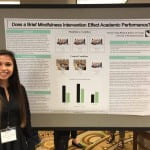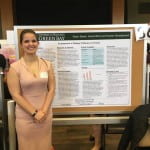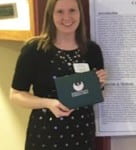The time has come for the 2018 Psych Star Awards! Below is a list of the awards and how to be nominated.
| Award | Eligibility | Criteria |
| Psych Research Star | A declared Psychology Major and Research Assistantship, Independent Study or Honors | Evidence of outstanding research efforts. Quality and quantity including: concept, execution, and final product |
| Psych Service Star | A declared Psychology Major and Activities in support of other students, the department, UWGB, and/or the community | Level of involvement, amount of effort, impact of the activity. |
| Psych Rising Star | A declared Psychology Major and First-Year through Junior status and minimum 3.5 cumulative GPA overall | Evidence of emerging academic achievement, conscientiousness, interpersonal skills, motivation, intellectual curiosity, work ethic, and involvement/leadership in the Psych Major |
| Psych Rock Star | A declared Psychology Major and Senior status and minimum 3.5 GPA in Psychology Major | Evidence of academic achievement, conscientiousness, motivation, intellectual curiosity, work ethic, and involvement/leadership in the Psych Major |
Award Selection Process
- Self, Peer or Faculty Nomination which would include 2-3 sentences on the merit of the nominee for the award criteria submitted to the Faculty Awards Committee (email Georjeanna Wilson-Doenges; wilsong@uwgb.edu) by Wednesday November 14, 2018 by 4:00 PM.
- Nominee is contacted by the Faculty Awards Committee and asked to prepare a nomination packet to be submitted by Friday November 30, 2018.
- Nomination Packets will include:
- General Info about credits taken, year in school and cumulative and Psychology GPA
- A 1-page (double spaced) essay expressing how the nominee meets the criteria of the award.
- The name of a faculty member who has agreed to serve as a reference for the nominee.
- Faculty Award Committee will decide winners and notify them by Friday December 7, 2018.
- Awards given out on Thursday December 13, 2018 at the end of the Research Methods in Psychology Poster Session at 4:30 PM












